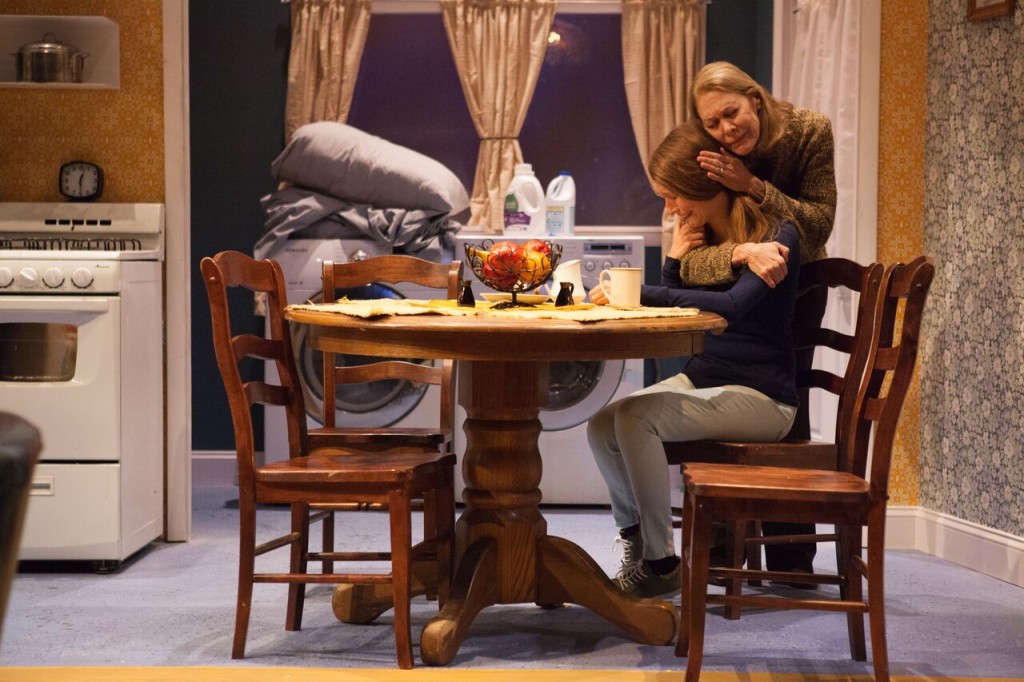
Inis Nua Theatre Company presents the American premiere of a sensational play by Mark O’Rowe; this is no small coup since O’Rowe is a major Irish playwright (Terminus, Made in China, Howie the Rookie). And the company has done him proud: a flawless production directed by Tom Reing with great finesse reveals a play of tantalizing, troubling ambiguity.
This is a family drama—the way Greek tragedy is family drama. Margaret (Nancy Boykin) and Michael (Andrew Criss have been married many years. Their son Jonathan vanished when he was eleven years old, and this fact has been the corroding and central fact of their lives. Their daughter, Adele (Amy Frear) has a new boyfriend, Dennis (Liam Mulshine), who has been invited home to meet the parents, although she is, oddly, absent, having been called away to tend to a desperate friend, suicidal over Gary (Nicholas Roseler). The cast is altogether fine, able to turn on a dime, and able to convey subtly the strange complexity of their motives.
As a portrait of the varieties of masculinity, this is a startling spectrum, from gentle to violent, loyal to exploitative; nobody is what he seems. The women endure, each in their own ways. This is a world of secrets, unspoken confessions, unspeakable truths that must be spoken. Watch as layers are painfully peeled away; you’ll be left both shaken and puzzled.
The set, designed by Meghan Jones, is deliberately ordinary, down to the thermostat on the wall. The lighting, designed by Andrew Cowles, is unnerving with its long, tense blackouts. Daniel Ison’s sound design ratchets up the suspense at all the needful moments.
Google provided this useful information (credit to Linnet Moss’s blog): The play’s resonant title, Our Few And Evil Days, refers to the moment in Genesis when Pharaoh asks Jacob his age. Jacob replies, “Few and evil have been the days of the years of my life.” Sir Thomas Browne wrote in the 17th century: To be ignorant of evils to come, and forgetfull of evils past, is a mercifull provision in nature, whereby we digest the mixture of our few and evil dayes, and our delivered senses not relapsing into cutting remembrances, our sorrows are not kept raw by the edge of repetitions. But the central characters of O’Rowe’s play relapse daily, and are deeply cut by remembrances; the structure of the play is based on the very sharp “edge of repetitions.”
It is also based on surprises, twists, turns, and shocking reveals, and this is why this is difficult review to write since almost anything I’d say would be a spoiler. I can say this much: Go see it.
[Inis Nua Theatre Company at the Proscenium Theater at the Drake, 302 S Hicks Street] April 25-May 13, 2018; inisnuatheatre.org
